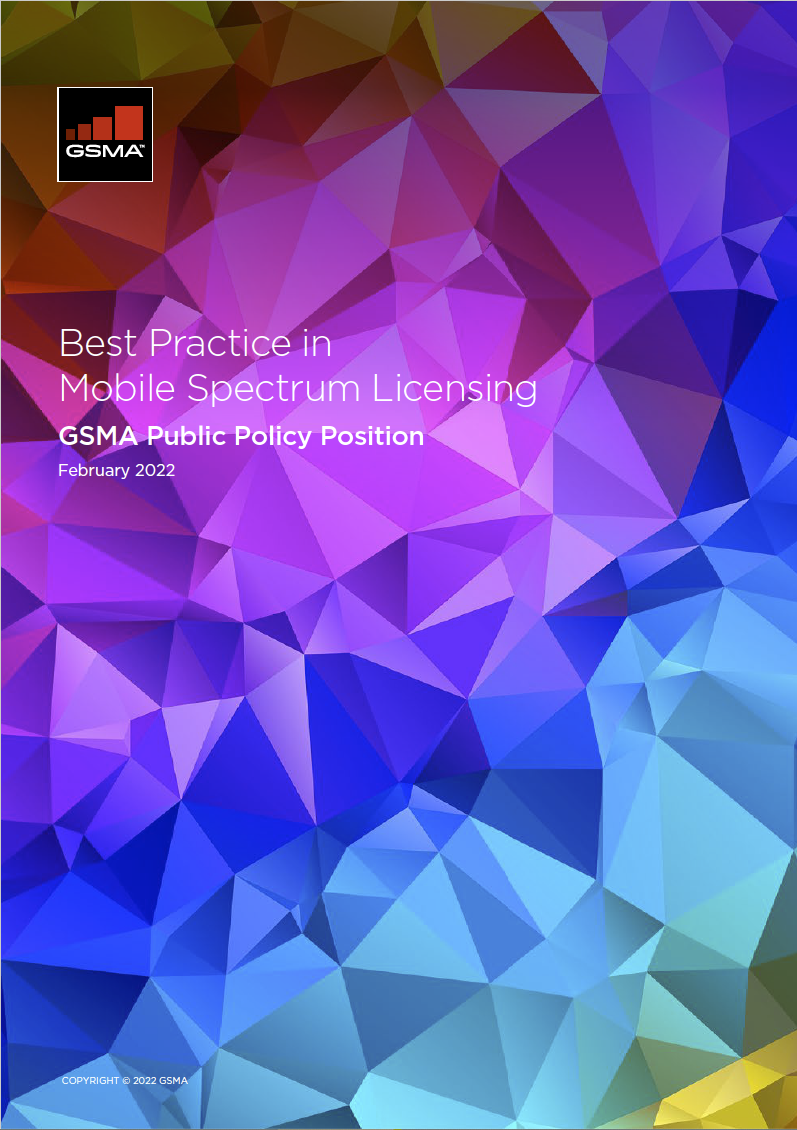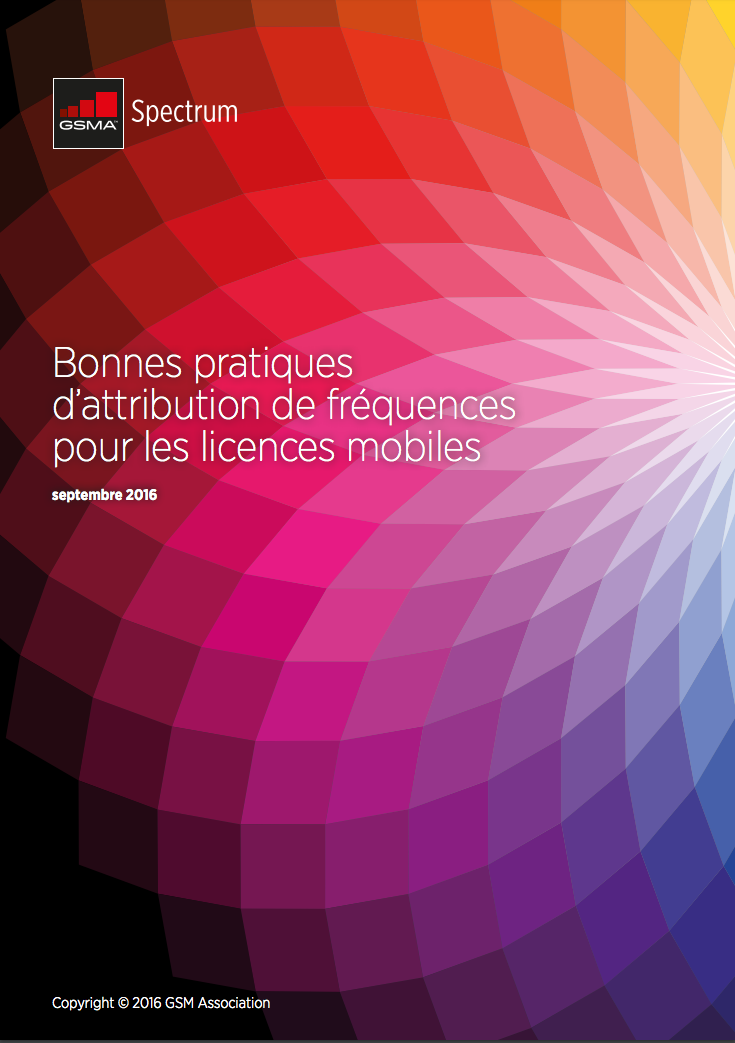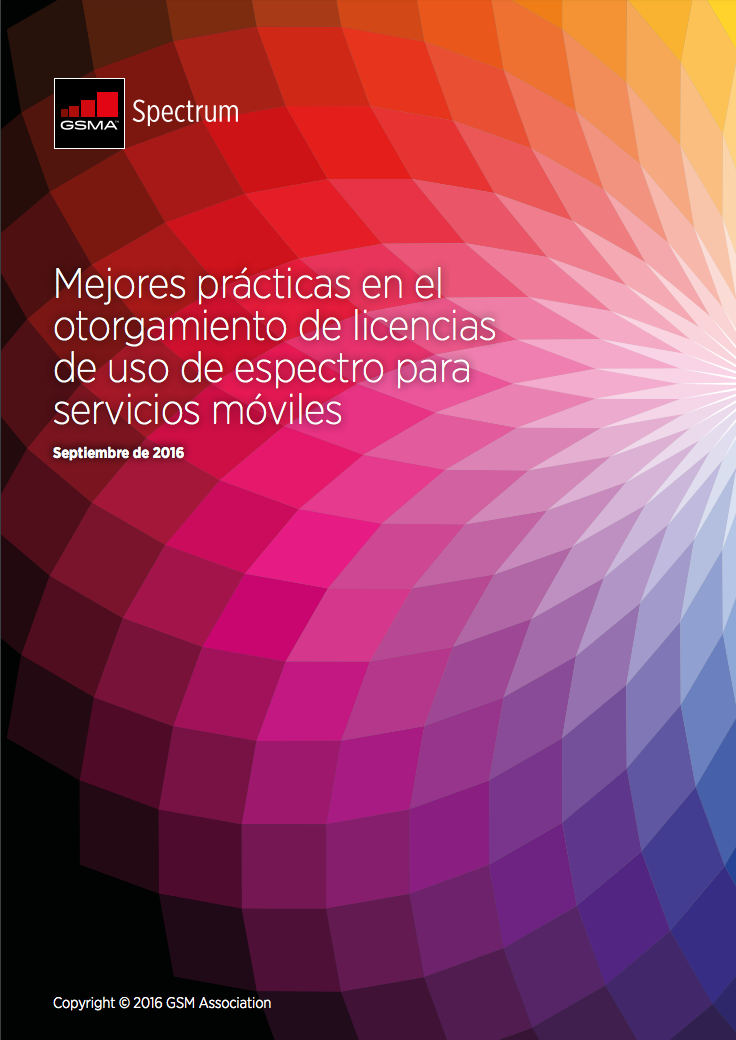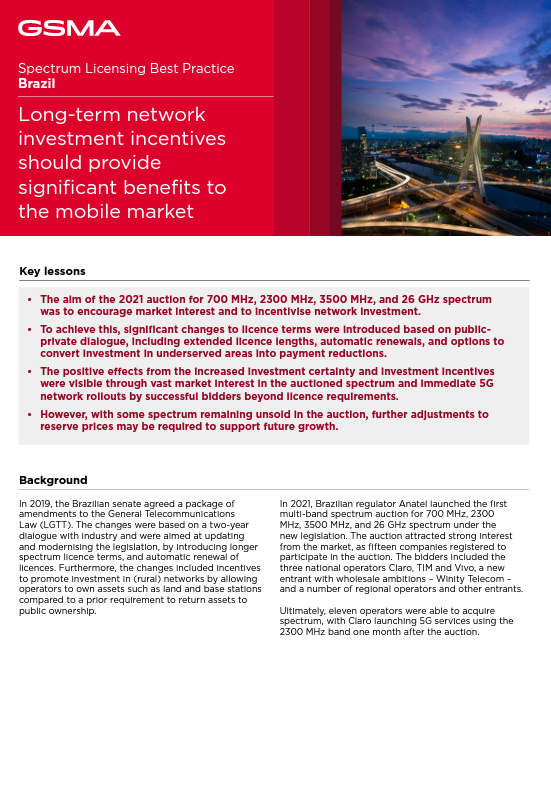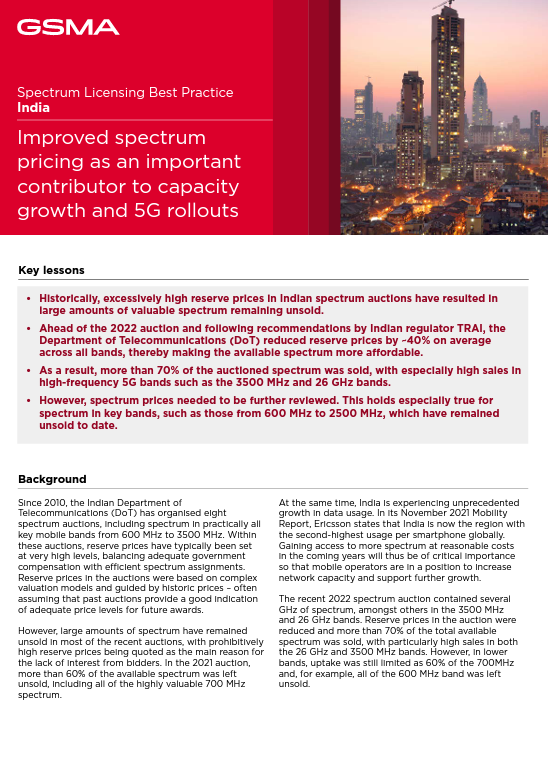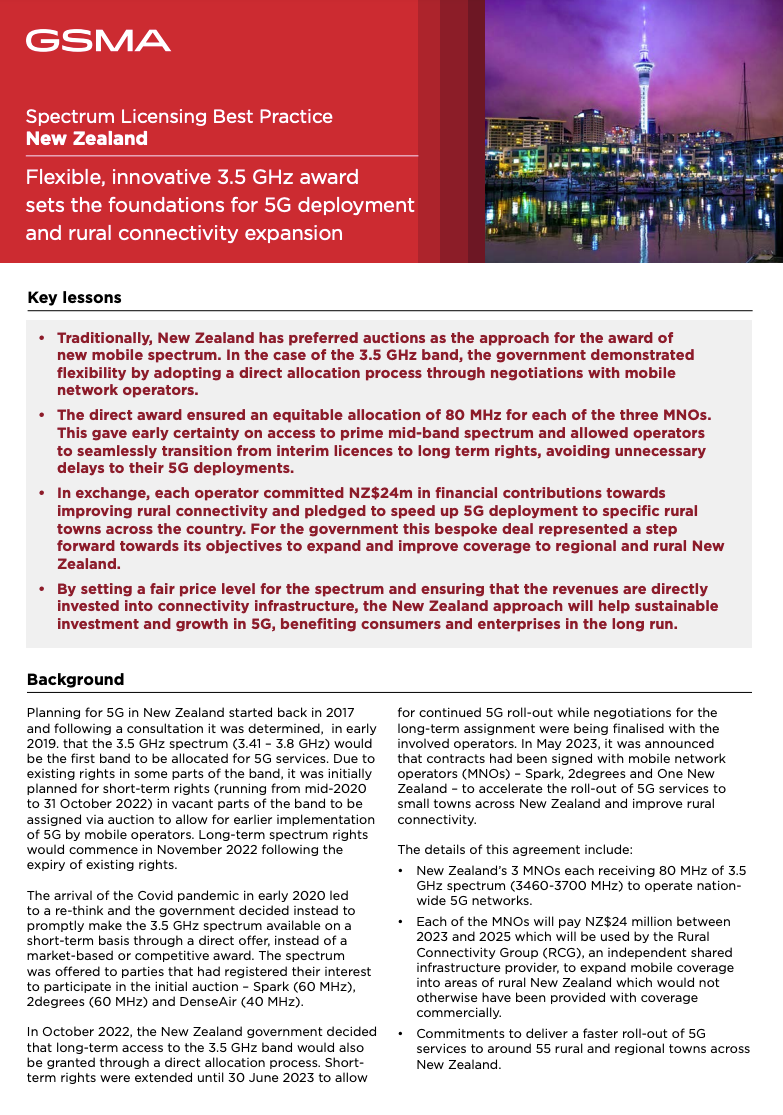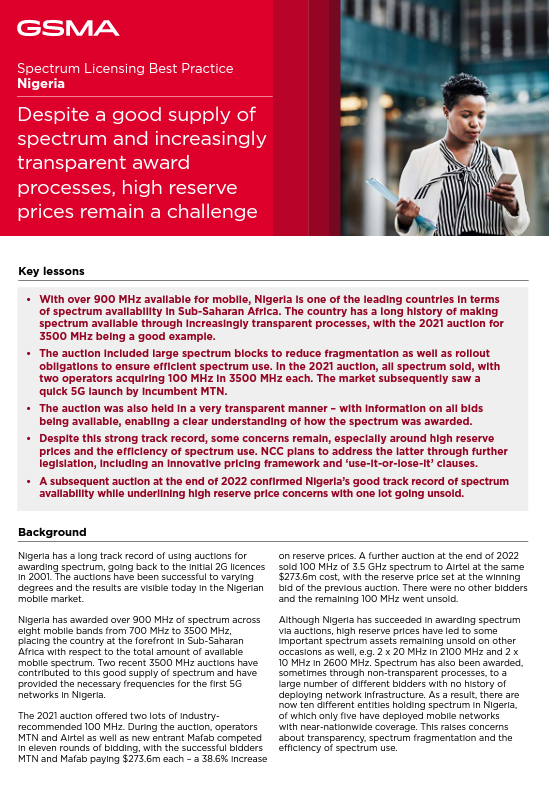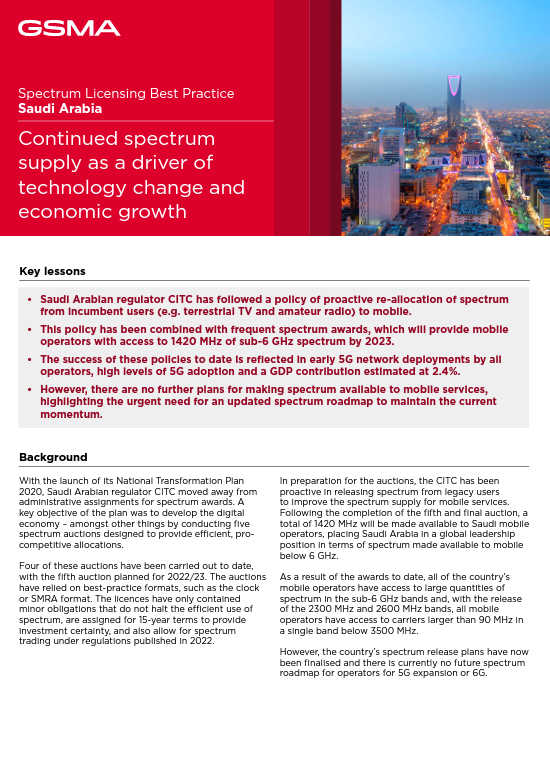Effective spectrum licensing is critical to encourage the investment required to expand mobile access, meet the increase in demand for data services and enhance the quality and range of services offered.
At its core, a spectrum licensing framework should:
- Ensure operators have access to sufficient spectrum;
- Provide predictability to support the new network investment needed; and
- Avoid costly restrictions on the use of spectrum beyond those needed to manage interference.
In this updated paper, we take a closer look at a variety of major policy issues, including different approaches to licensing, pricing, license terms and conditions, and how the right policies can help encourage competition. We also look at the advantages and disadvantages of different ways to address these issues.
And while there is no one-size-fits-all solution to spectrum licensing, the GSMA believes in a number of core principles. They include:
- Predictable and timely spectrum licensing encourages long-term network investment;
- Auctions deliver social benefits… but must be properly designed;
- A presumption of licence renewal encourages long-term network investment;
- High spectrum prices jeopardise the effective delivery of wireless services; and
- Where spectrum is auctioned, ongoing charges should be limited to recovering the cost of spectrum management.
Find the remaining five and learn more by downloading the full spectrum licensing paper here.
We also provide four case studies of countries which have implemented best practice in spectrum licensing: Brazil, India, Nigeria and Saudi Arabia.
And read more about spectrum pricing here.


